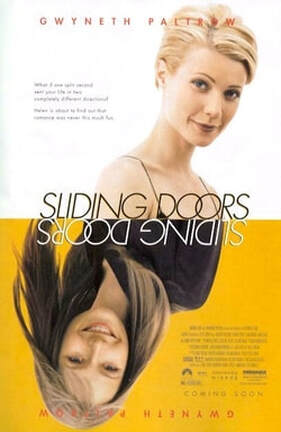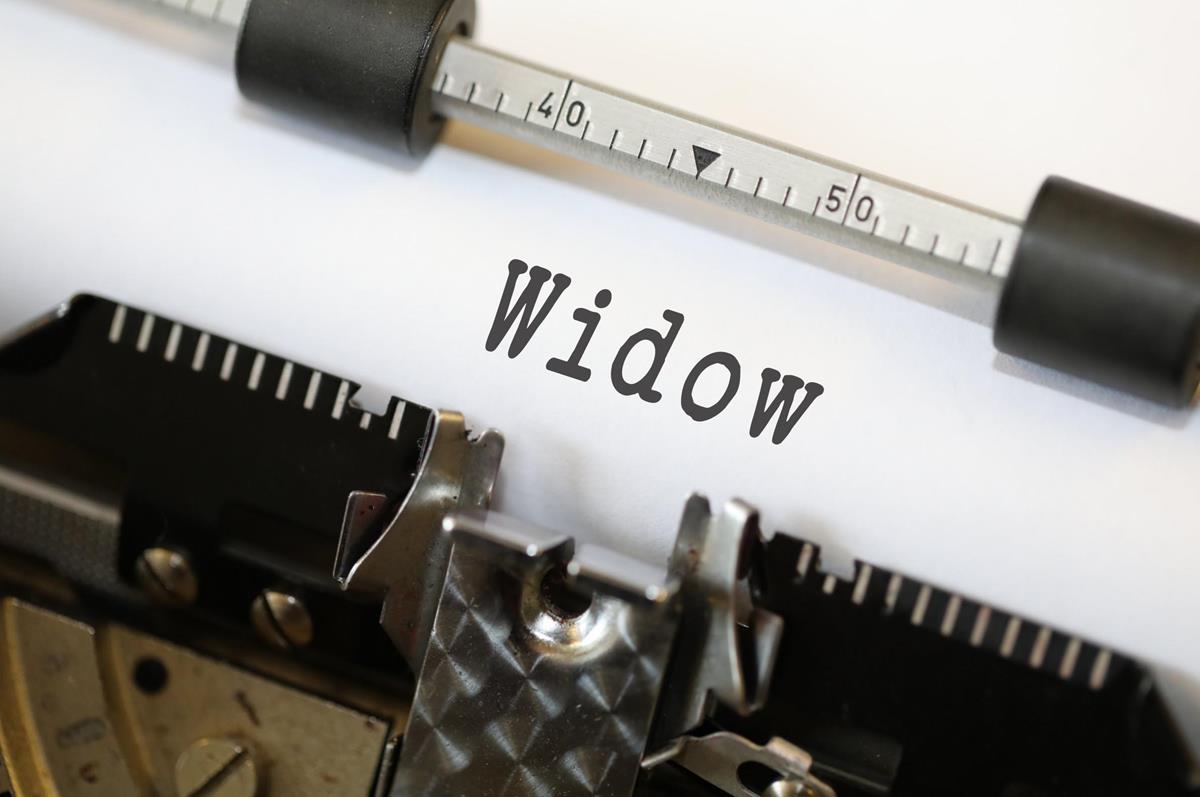|
A guest blog from Alison Messom
1. What you are feeling is entirely normal. There are no rights or wrongs. What feels right to you is right for you. 2. The marriage vows talk about until death us do part. Your partner’s death was not your choice but you are now released from your vow, if you choose. Some people make an active choice not to have another partner. That is what is right for them. 3. Any new partner will never replace your late partner. They will be different. Some folks refer to them as a chapter 2. Personally I don't like that phrase as my life is defined by so much more than my relationships... but I get the point that it is something new and different. 4. We don't move on, our love for our partners continues. However we do move forward. That new journey can be hard, scary, beautiful and rewarding all at the same time. 5. Make sure you are comfortable in your own skin before embarking on a new relationship. Put in the time and effort to work on your grief, have counselling if you need it etc. That way you'll be in the best place to enjoy any new relationship. 6. Do not use any new partner as a substitute therapist; use a professional for that. Yes they should be empathetic, but they are there to share your life, not to fix you. 7. Remember there is an enormous human need for company and that can be platonic too. You may find you build new circles of friends that go with your new life. 8. Every day is just 24 hours. Use the best ones to build and bank lovely memories to help you through tough times. The worst days will end even if there are times when they feel never-ending. Finally, you've got this. You deserve happiness. Don't let yourself be judged. Anyone who is judging you is not worth the time and effort. This is your life, make it the best one you can with the cards you've been dealt.
1 Comment
I was diagnosed with ADHD a couple of years ago, while I was studying part time for an MA in Writing for Performance. While I haven't sought treatment, it has allowed me to understand a lot about me, and made me able to begin to forgive myself for the things I haven't done, opportunities I've missed, time I've spent faffing, ridiculous mistakes I've made and some of my more gratuitous social faux pas. It also made me think about the impact that having ADHD (then undiagnosed) had on how I dealt with Tim's death.
Hyperfocus I went back to work a few weeks after Tim's death, and ADHD's hyperfocus allowed me to hide in my freelance writing. Being able to switch between grieving and coping gave my brain a break. However, it also meant that I took on too much, and I had to withdraw from a couple of big projects after my mental health crashed. Hyperfocus in grief can also result in an intense focus on the loss, which makes it harder to deal with. Overthinking ADHD means a lot of overthinking, and examining how I feel and how I present to the world. I suspect that ADHD is the reason that I have always felt that everyone else has a set of rules on how to react, what to say and how to be in any given situation, and I have either lost my copy (ADHD means I lose a lot of stuff) or never received it in the first place. I would suggest I write a spin-off from the Widow's Handbook called the ADHDers Handbook, but Jessica McCabe has already done it so well at How To ADHD. But I digress (people with ADHD tend to do that too). This overthinking and the lack of a non-existent rulebook often left me wondering whether I was grieving correctly – perhaps I was grieving too much, grieving too little, grieving too openly, or grieving too privately. Spending time with fellow widows, including fellow ADHDers, means that I understand that there is no 'normal' in grief. Now and not now and struggling with reality People with ADHD can see time as either 'now' or 'not now'. This is most commonly used to describe how ADHDers struggle with not being able to judge how long a task will take and so run out of time, or how we can perform well under pressure and with short deadlines, as that is NOW NOW NOW. As well as ADHD, I have had the symptoms of depersonalization/derealization disorder since my teens. This episodically makes me feel detached from myself, almost as if I am sitting inside my own head watching the world. This often goes alongside ADHD, and I think it led to me dissociating during grief, as another way for my brain to protect me. I wonder, though, how both of these affected how I grieved. Are these why my life with Tim feels like it happened in a parallel life, or in a dream? Are these why I have been able to pick myself up and create a new life? If so, I'm not sure how that makes me feel. Does it mean that my neurodiversity has allowed me to file him away, move on, and start something new? That thought actually hurts more than I expected it to. Alternatively, do they mean that my neurodiversity actually looked after me as I grieved? A wall of coping strategies Historically, girls are less likely to be diagnosed with ADHD than boys, as they are more likely to show inattentive symptoms (tick), forgetfulness (tick), anxiety (tick) and depression (tick). In the 1970s and 1980s, ADHD was something that happened to young hyperactive boys, not dreamy, anxious forgetful and non-confrontational girls. As a result, I built up a lot of coping strategies over the years, and I suspect that these have made me more resilient in a lot of situations, including grief. These coping strategies can bite back though – they mean that I bottle things up and get overwhelmed, ending up with a spectacular meltdown triggered by a very small incident. The impact of grief on ADHD Widow brain affects executive function, the system in the brain that sits in the prefrontal cortex and supports your ability to understand, decide, recall, memorise and have self-control. It is also involved in regulating emotions. People with ADHD already have issues with executive function, and so it's hardly surprising that grief exaggerates and intensifies ADHD symptoms. The physical symptoms tied up with grief, such as problems with tiredness, insomnia, pain and loss of appetite can also make ADHD symptoms worse. Hints and tips
While the idea of creating a blog called The Widows's Handbook had been floating around in my head for a while, I finally took the plunge and posted the very first post on 23 September 2021, one year ago today. Thank you to everyone who takes the time to read the blog - I hope that it helps you, whether you are a widow and part of the club no-one wants to join, or whether you are a supporter of someone who is bereaved.
I've known that I was attracted to both men and women since my 20s. Actually… the crushes on a couple of truly awesome female teachers in my teens might mean I knew it before, but didn't realise what it meant. The first time I came out as bi to a lesbian friend, she told me that bisexuality is just a phase, and I should pick a side. Consequently, I didn't tell anyone else for a long time.
I married Paul at 24, which now seems impossibly young. Over a decade our marriage fell apart. Tim, who I'd known for many years, helped me through depression and a divorce, and we drifted from being very close friends to falling in love. While I spent this period of my life 'straight passing', I was still bisexual. Tim knew about my sexuality and loved me all the same. He died suddenly at 50, after we'd only been married nine years, and my life crumbled. Some friends had known that I was bi, but I wasn't really out. Even before Tim died I'd been feeling that I was somehow living a lie, and betraying who I was. As I started to build another life, I became more open about what I was. And when I started seeing a woman, I couldn't really hide any more. The responses to me coming out, as well as 'picking a side', ranged from total acceptance and 'when I met you, my gaydar pinged, but I assumed that I was wrong – I see now', to 'I don't understand – you used to be married to a man but he's dead' and 'does that mean you were sleeping with women when you were married to your husband?' Now I am married to a woman, I guess I'm 'lesbian passing', and I suspect that many people think I have made a major lifestyle change, finally picked a team, or only just realised I'm gay. This isn't helped by bi erasure, and by the media and entertainment tropes about bisexuals showing them (us) as cheating, confused, greedy, promiscuous, villainous, unable to stay faithful, or just bi-curious. And that's just the women. The bisexual men are much less visible. However – I am proudly and defiantly queer. I am bisexual, from the pink and purple in my hair down to my awesome Pride Converse. Have a wonderful Celebrate Bisexuality Day! #CelebrateBisexualityDay #BisexualPrideDay #BiVisibilityDay In my other life, I'm a medical writer, and I sometimes travel to for work. A few months after Tim died I went to Germany to write a report on a meeting. Whenever I went away, I'd always tell Tim that I was heading off to spend time with my people – doctors, scientists, researchers – and going to the conference was a little slice of normality after his death turned my life upside down. I love flying and the excitement of the journey kept me going, but arriving at the hotel brought me back down with a bump, as we'd message when I arrived safely and I'd send him pictures of the hotel room and the view out of the window. The conference went well, and I found moments of happiness talking about the science that I love. The journey home was hard, with a long delay in a late-night European airport, but a fellow widow kept me going by chatting on Messenger, and for that I'm still grateful.
Four and a half years on and I'm going to Grenoble to chair a panel at a medical devices conference, and my journey starts in Hope, at a rural railway station in the dawn light. I am living a whole new life – before I left I kissed my new wife and my new puppy goodbye – but I still carry Tim with me as I head out to see my people. Sometimes I feel that I'm living two parallel lives. There's the life that changed abruptly when Tim died, and the other that carried on, where we are still married and he is still in his bookshop downstairs.
I've had a birthday this week.
My birthday has long been a bittersweet day. My first husband's mother died suddenly and unexpectedly on my 24th birthday, nine months before we got married. He rang me just as I was getting up, and I knew as soon as he spoke that something was wrong. That was the first death close to me. Roll on a couple of decades, and Tim and I married on my birthday. Everyone sang happy birthday to me at the reception. It seemed like a lovely thing to do at the time. But after Tim died, this left me with two milestones on one day. A birthday in September is associated with a change of the seasons, and I think my brain and body subconsciously mark the approach of the date with the smells, sounds, temperature and day length of oncoming autumn, even before I realise that the date is approaching. My birthday rolls into the milestones. Tim's birthday in December. Christmas, which was often a time just for the two of us. New Year, where we saw the people we've partied with since our early twenties. And then his death date, 24 February. And so, I find this time of year tough, and often have to surf a wave of depression around now. Which means I need to try to take my own advice. I'm going to be kind to myself. Sit through the grief attacks. And know that the depression wave will lift. Amazing news this weekend - WAY Widowed And Young has awarded the Helen Bailey Award for Best Widowhood Blog to The Widow's Handbook. I am so glad that my blog has helped widows and I am so grateful to all the WAY members who voted for me.
About Helen Bailey Helen Bailey wrote the Planet Grief blog. "On the 27th February 2011, whilst on holiday in Barbados, my husband got off his sun lounger, adjusted his glasses and headed into the sea for a swim. Moments later, I heard him call for help, and watched helplessly from the beach as he was pulled out to sea by a rip tide. He drowned. Bizarrely, after he died, almost the first thing I said was, "But I’m wearing a bikini!" as if bad things can’t happen when you’re wearing a good bikini. But they can, and it did. At the age of 46, I crash-landed on Planet Grief, a place where nothing, not even my own reflection in the mirror, felt familiar." She worked in character licensing by day, and in the rest of her time she wrote and published over twenty books of short stories, picture books and young-adult fiction. She disappeared on 11 April 2016, and her body was found, along with that of her dog, at the house she shared with her partner, Ian Stewart. Stewart was arrested for her murder, and given a life sentence. WAY Widowed and Young created the Helen Bailey Award for Best Widowhood Blog to celebrate Bailey's blog and her book on grief, When Bad Things Happen in Good Bikinis. |
AuthorI was widowed at 50 when Tim, who I expected would be my happy-ever-after following a marriage break-up, died suddenly from heart failure linked to his type 2 diabetes. Though we'd known each other since our early 20s, we'd been married less than ten years. Archives
July 2024
Categories
All
|









 RSS Feed
RSS Feed